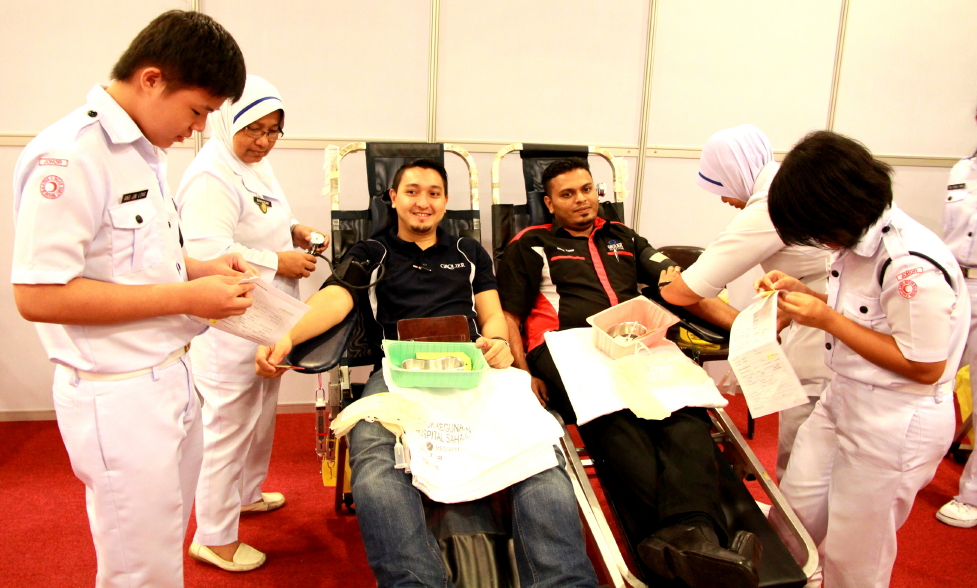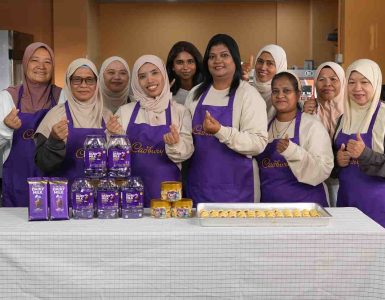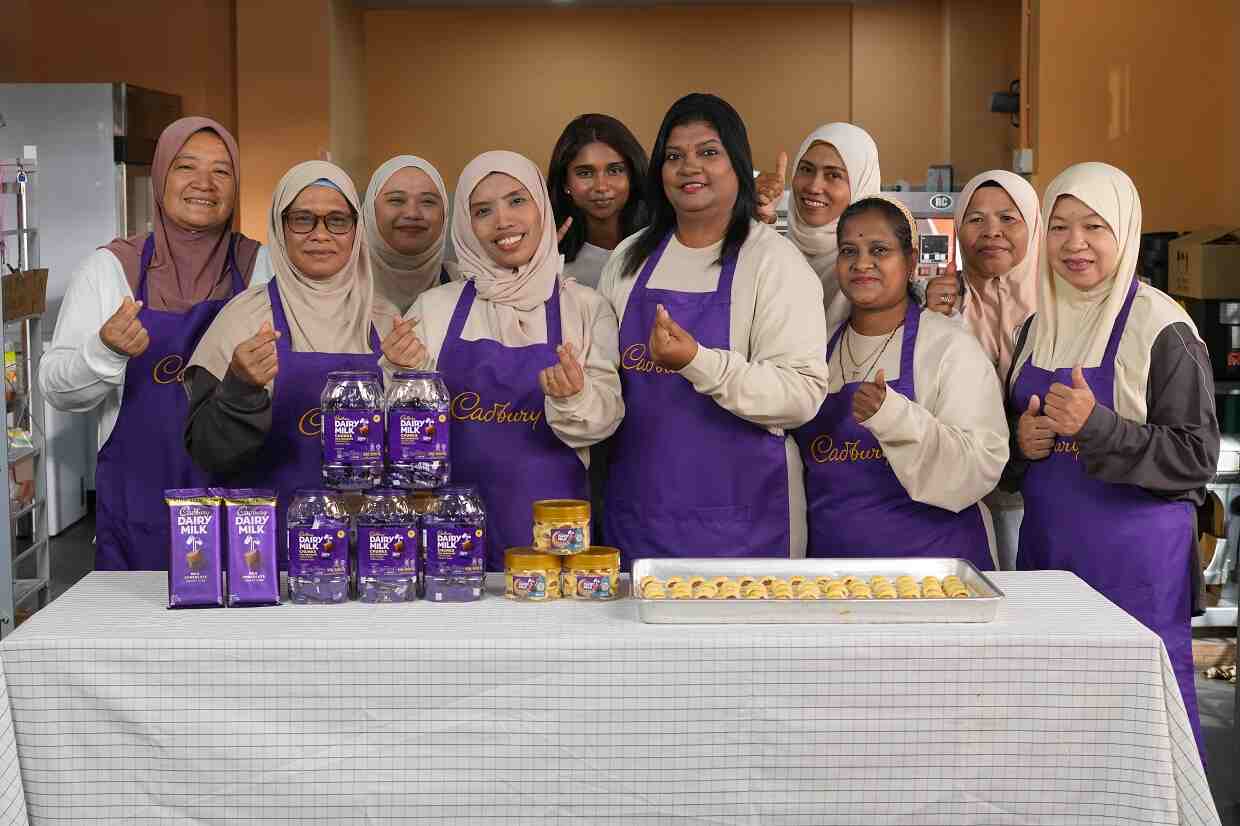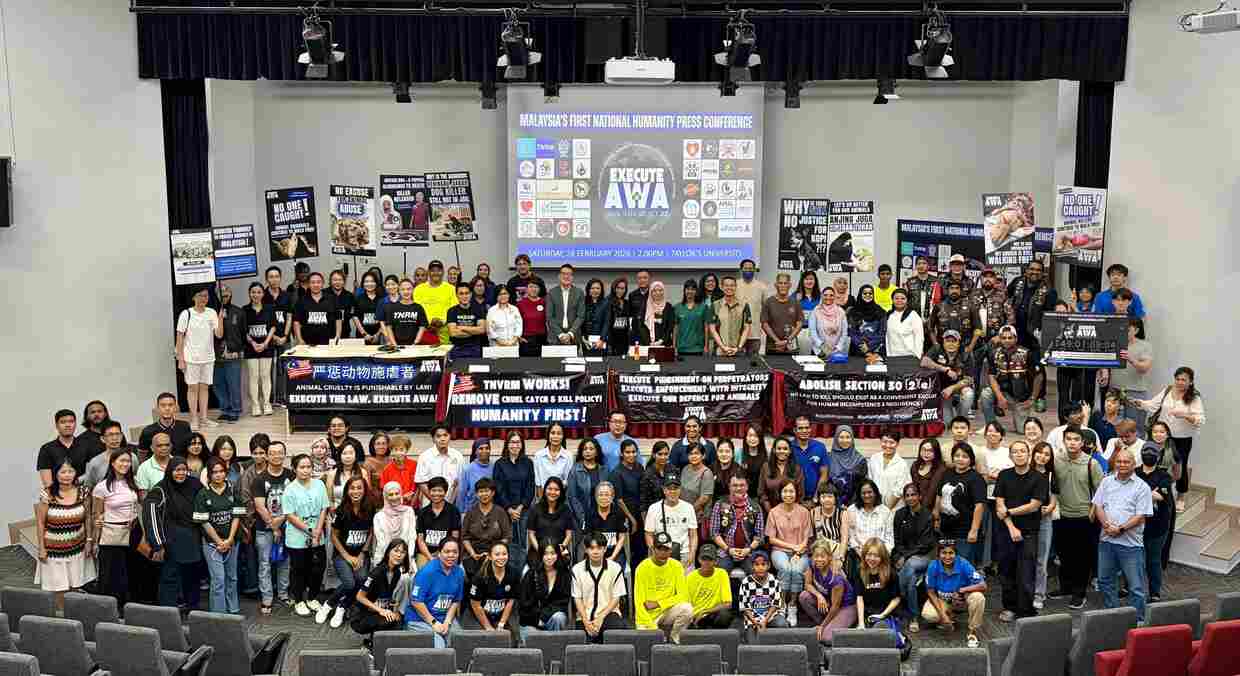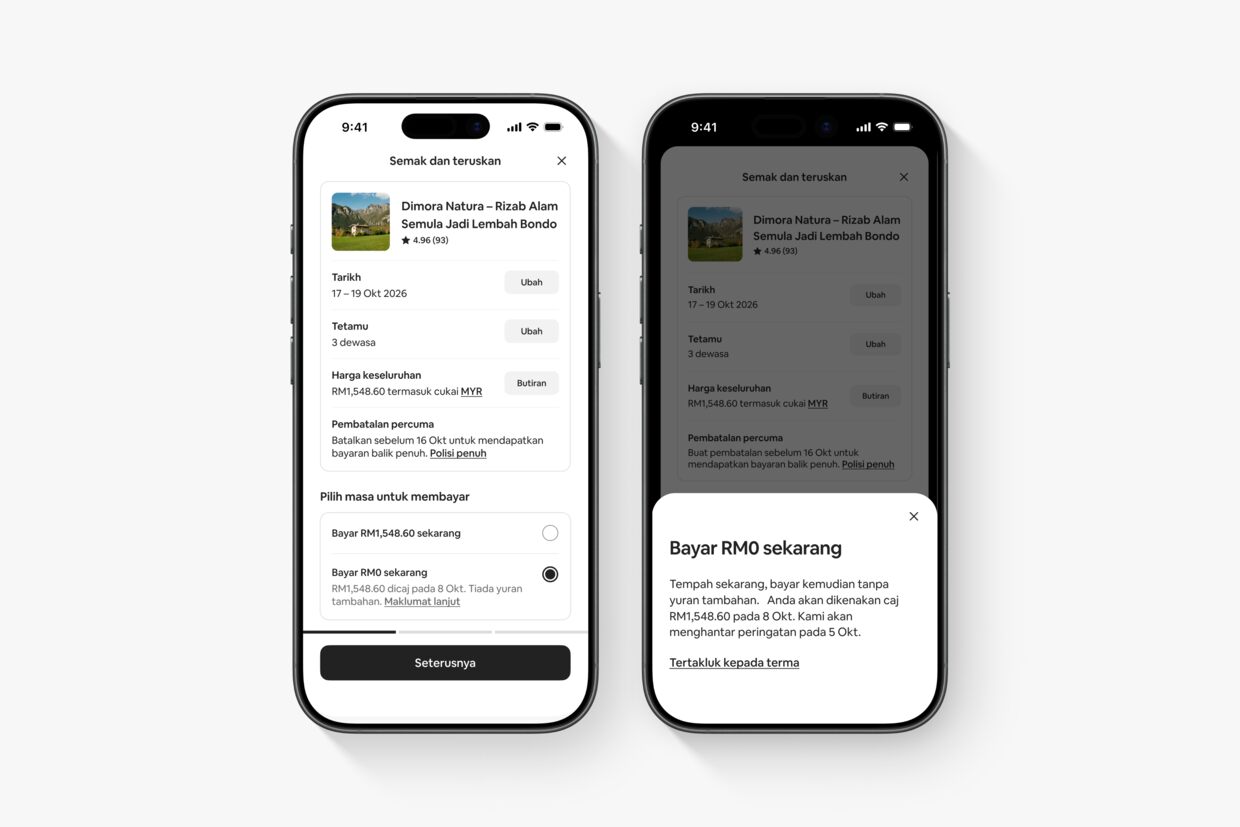
by Teresa Yeo and MK Ong
On 1 December 2013, the Rotary Club of Johor Straits View, in collaboration with the Malaysian Red Crescent Society(MRCS) JB Chapter and the Sultanah Aminah Hospital, organised a campaign for blood and organ donation at the KSL City Mall, Johor Bahru.
The campaign was officiated by Mr Mok Chek Hou, the Special Officer to the MP of Johor Bahru and he was accompanied by Mr Tan Ming Hwa, Chairman of the Rotary Club of Johor Straits View and Mr Chong Ah Ng, Chairman of the Malaysian Red Crescent Society/JB chapter.
Many members of the public thronged the popular KSL City Mall to witness the annual Rotary club event.
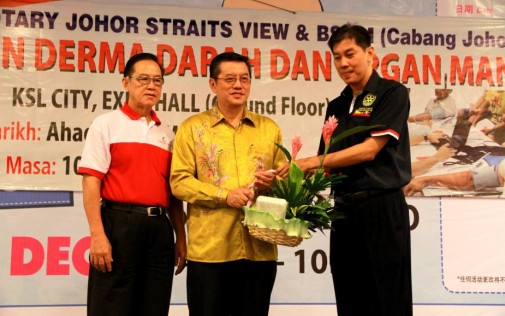
Mr Mok applauded those who have come forward and said that, “the donation of blood and organs is a very sacred act because it saves lives and these donors must be recognised and appreciated.”
He added that the Rotary Club and the Malaysian Red Crescent Society have performed very well in helping the needy.
He informed that so far, the JB chapter has collected 3,800 bags of blood which have been handed over to the General Hospital.
He understands that the MRCS expects to collect up to 4,500 bags by the end of the year.
According to Mr Mok, since the commencement of the registration of organ donor campaign, 9,000 Malaysians have come forward to register as donors but more were needed.
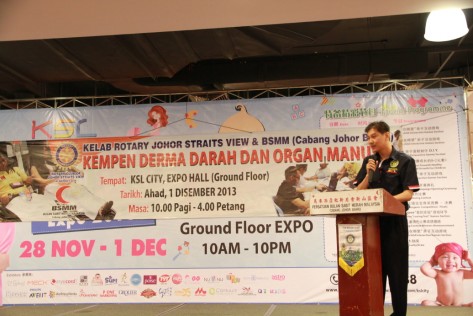
In the address by Mr Tan Ming Hwa, he thanked Mr Chong Ah Ng, chairman of the MRCS/JB Chapter for collaborating and or-organising this annual campaign with the Rotary Club of Johor Straits View.

According to him, the campaign is aimed at encouraging the public to donate blood besides helping the National Blood Centre and Hospital Sultanah Aminah Johor Bahru to enhance awareness in the society on the importance of donating blood.
Besides the blood donation drive, the General Hospital is appealing to the public to register as organ donors at the same time.
The CJMY reporter spoke to Mr Yip Koh Choon, Vice Chairman of Blood Donor Recruitment Program MRCS/JB Chapter.
According to Mr Yip, they hoped to collect 200 bags of blood that day and have at least twenty members of the public sign up as organ donors.
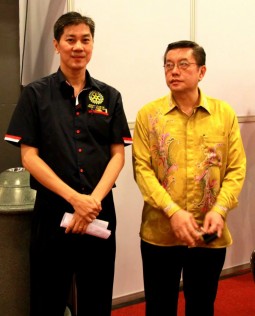
When asked why people were hesitant to pledge to donate their organs, he said many people believed that as they had come to this world intact with their organs , they should “go back” in the same condition.
Mr Yip added that donating two kidneys could save four lives as the first kidney could be donated to one person and the second to another person. On top of saving two lives, two persons who were waiting to go on a dialysis machine would have their waiting time reduced.
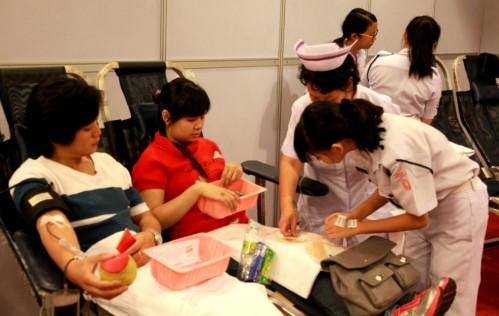
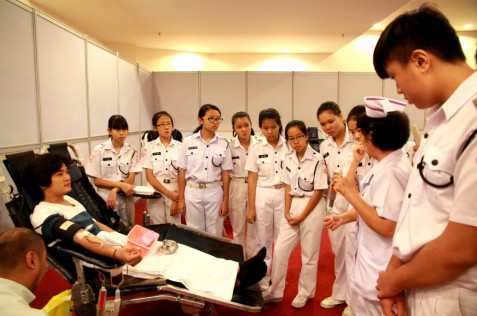
He added that they organised such campaigns at least 24 times a year, if not more.
When asked about the racial breakdown of blood donors, he said there is now a noticeable shift to Chinese who now donate 60 per cent of the blood received.
Before, it was the Malays who donated more than the other two main races.
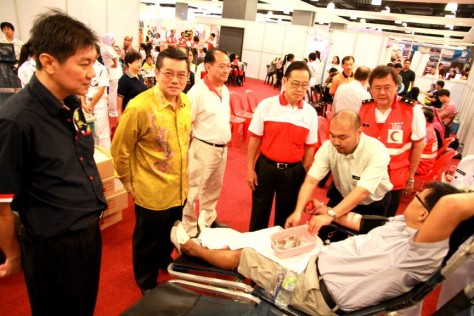
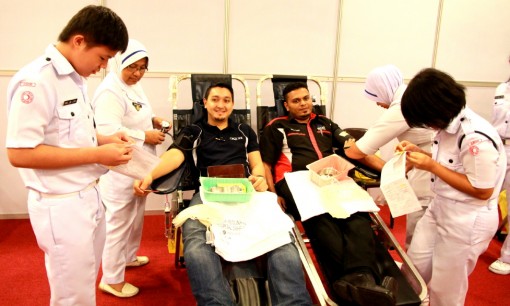
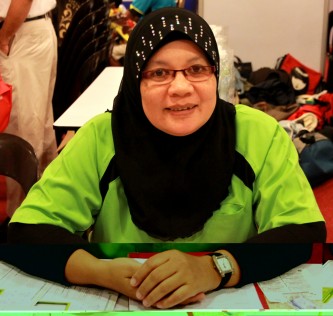
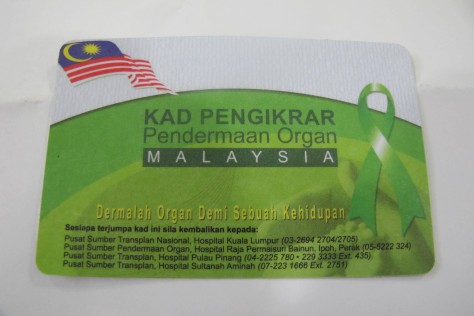
It is understood that all the major religions of the world endorse organ and tissue donation as the ultimate act of charity and benevolence.
The commonly transplanted organs are kidneys, heart, liver, lungs and pancreas while the transplantable tissues are eyes, bone, skin and heart valves. Thus a single donor can save the lives of a number of people.
According to the Malaysia Factbook: “As of September 2012, there are 15,611 patients throughout Malaysia waiting for organ donation. Out of this number, 15,581 were kidney patients (as compared to 6,000 in 2009, 16 with chronic liver disease, 8 with heart disease, 3 with lung disease, and 6 with both lung and heart diseases.”
“At 1.7 per cent of our population of about 28.7 million, the number of organ donors in Malaysia is still small. Spain has the biggest number at 34.1 per cent of its population, Singapore at 6.0 per cent and Saudi Arabia at 4.2 per cent.”
The Red Crescent hopes that people would pledge their organs today and preserve lives when theirs are gone.


